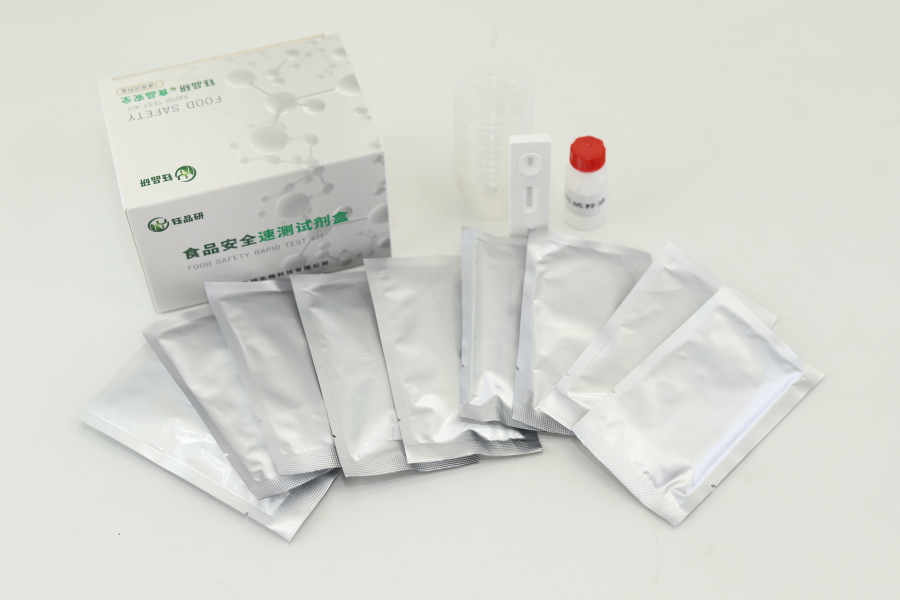
people put food first, and food safety first. In modern agricultural production, the use of pesticides plays an important role in improving yield and preventing pests and diseases, but it also brings the risk of pesticide residues. Among them, organophosphorus pesticides such as chlorpyrifos and fenthion have been widely used, and their residues have attracted much attention. Scientific, rapid and accurate detection of these common pesticides is a key link to ensure food safety.
Chlorpyrifos is an organophosphorus insecticide with contact, stomach toxicity and fumigation effects. It has been used on vegetables, fruit trees, tea and other crops. Although its efficacy is significant, long-term intake of trace chlorpyrifos residues may cause potential harm to the human nervous system, liver, etc. Fenthion is also an organophosphorus insecticide, which is mainly used to control chewing mouth pests. Its residues may also enter the human body through the food chain and affect human health. Therefore, it is essential to strengthen the monitoring of these two types of pesticide residues in food to control food safety risks.
At present, there are various detection methods for chlorpyrifos, fenthion and other pesticide residues. Traditional instrument detection methods such as gas chromatography (GC), liquid chromatography-mass spectrometry (LC-MS/MS), etc., have the advantages of high detection sensitivity, good accuracy, qualitative and quantitative accuracy, and are the gold standard for laboratory confirmation detection. These methods can accurately determine the specific content of chlorpyrifos and fenthion in food samples, providing authoritative data support for food safety supervision. However, instrument detection usually requires professional operators, expensive equipment and a long detection cycle, which is difficult to meet the needs of on-site rapid screening and rapid detection of a large number of samples.
In order to make up for the shortcomings of traditional instrument detection, rapid detection methods came into being. Among them, rapid detection technologies based on immunological principles such as immunochromatography colloidal gold method and enzyme-linked immunosorbent assay (ELISA) have been widely used in grass-roots supervision, enterprise self-inspection and other fields because of their simple operation, fast and efficient operation, relatively low cost and low requirements for the detection environment. These rapid detection methods can conduct preliminary screening of a large number of samples in a short time, and find positive or suspected positive samples in time, which greatly improves the efficiency of food safety supervision.
Wuhan Yu Pin Yan Bio, as a professional food safety rapid detection reagent manufacturer, is committed to providing efficient and sensitive detection solutions. Its related pesticide rapid detection products can meet the needs of on-site rapid screening, providing strong technical support for food safety production, supervision and market access. By using Wuhan Yu Pin Yan Bio's rapid detection reagents, inspectors can quickly get test results on site, which helps to take timely control measures to prevent substandard food from entering the market.
In the actual testing work, the selection of appropriate testing methods needs to comprehensively consider factors such as testing purpose, sample type, testing cost and time requirements. For laboratory testing that requires accurate data, instrumentation methods are still the first choice; while for rapid screening in production bases, farmers markets, catering enterprises and other places, rapid detection reagents can play their advantages even more. The food safety rapid detection reagents produced by Wuhan Yupinyan Bio are precisely for the needs of rapid screening, and strive to provide users with a convenient detection experience on the premise of ensuring the sensitivity and accuracy of detection.
. In short, the detection of pesticide residues such as chlorpyrifos and fenthion is an indispensable part of food safety work. Whether it is the use of advanced instrumentation analysis or convenient rapid detection methods, the ultimate goal is to effectively control the risk of pesticide residues and ensure the dietary safety of consumers. Wuhan Yupinyan Bio will continue to focus on the field of food safety rapid detection, continuously improve product performance, and contribute to building a safer food supply chain, so that consumers can eat with confidence and peace of mind.

